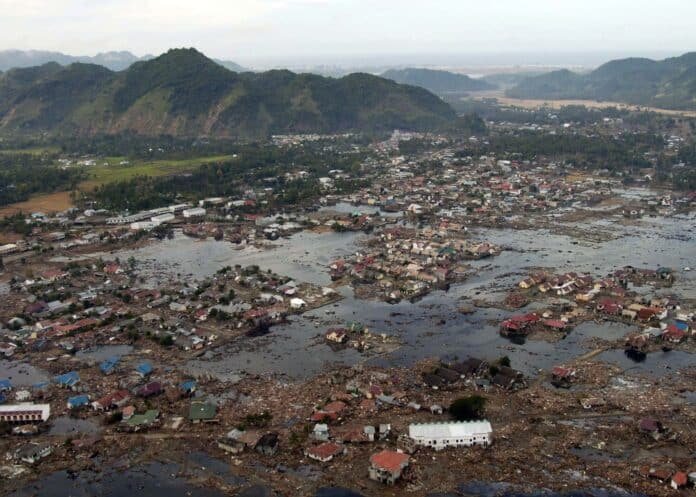NEW YORK, SEPTEMBER 9 – “The International Law Commission draft articles on the protection of persons in the event of disasters fill an important legal gap. They would not affect existing sovereign prerogative or bilateral and regional arrangements. On the contrary they would represent an important reference for the development and conclusion of new instruments including in the immediate aftermath of disastrous events”, the Italian Deputy Permanent Representative to the United Nations, Ambassador Stefano Stefanile, said today, introducing a webinar co-organized by the Missions of Italy, Columbia, Jamaica, Japan, and Nigeria.
“This is a matter of great importance to us. Due to its geography and its history, Italy is a country that is unfortunately prone to natural disasters. Experience with disasters have taught us that the only way to address their threats is through an anticipatory approach in risk reduction and risk management”, said Stefanile, stressing that the draft articles would represent a robust legal foundation which encompasses both risk reduction and response to disasters upon which members of the Commission can build in order to achieve these important goals.
The ILC is at work on the draft articles following the devastating earthquake and tsunamis that hit South East Asia and the Indian Ocean on December 26, 2004, killing an estimated 227,898 people in 14 countries and causing enormous damage to infrastructure from East Africa to Thailand. While international assistance was generous, totaling more than $14 billion, the tragedy’s aftermath prompted considerable reflection about early warning systems, international assistance and national disaster management frameworks.
Inspired in large part by the reports and questions of affected governments, donors and humanitarian agencies, the ILC decided in 2007 to include the topic “Protection of Persons in the Event of Disasters” in its program of work. In 2016, after the submission of eight reports by Special Rapporteur Eduardo Valencia-Ospina, and two rounds of comments by Member States and international organizations, the ILC adopted the final text of the 18 draft articles and forwarded them to the General Assembly with the recommendation that a convention be elaborated on the basis of the draft articles. The recommendation continues to be timely as disasters in recent years have become more recurrent and impactful as a consequence of climate change and the increase in vulnerability and exposure to disaster risk faced by communities all over the world, thus further confirming the need for a stable legal framework intended to enhance international cooperation on disaster risk reduction, preparedness and response.
The Sixth Committee will continue its consideration of the ILC’s recommendation during its 76th session, in October 2021. In the meanwhile the webinar, moderated by Italian expert Giulio Bartolini, from University of Roma 3, and the Editor-in-chief of the ‘Yearbook of International Disaster Law’, issues such as the desirability and practical advantages of regulating international cooperation in the field on the basis of a legally binding instrument; whether the ILC’s Articles provide a solid basis upon which to elaborate a convention, especially with regard to the delicate balance between the need for international cooperation on humanitarian assistance in the event of disaster and State sovereignty; the extent to which risk management should be included in a future convention, including on the basis of what is provided under the Draft Articles; and finally the relationship between a future convention on PPED and international humanitarian law. (@OnuItalia)

